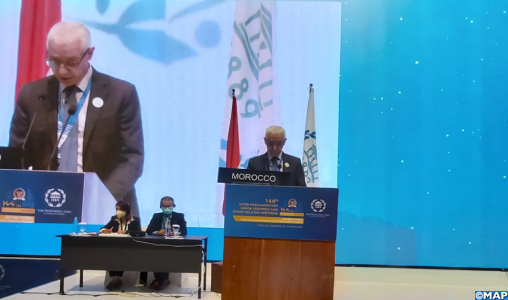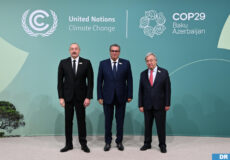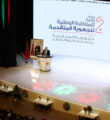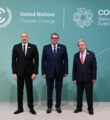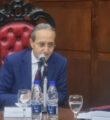Morocco Among 1st Nations to Take Proactive Measures to Protect Environment (Lower House Speaker)
Rabat – The Kingdom of Morocco was among the first nations to take proactive measures to protect the environment and reduce the gas emissions responsible for global warming, said speaker of the House of Representatives, Rachid Talbi Alami.
Speaking at the opening of the 144th Assembly of the Inter-Parliamentary Union, which is being held in Nusa Dua, Indonesia, under the central theme “Mobilizing parliaments to act on climate change”, Talbi Alami said that the protection of the environment is an integral part of the public policies of Morocco, in keeping with the provisions of the Constitution.
Environmental protection, he added, is ensured through the public policies implemented in various fields, recalling the Kingdom’s ambitious policy in terms of energy production from renewable sources (solar, wind, marine and hydraulic) and the agricultural policy which contributes to the preservation of the environment and also to covering the food needs of Moroccans and the supply food to numerous international markets, in addition to the controlling of maritime fishing activities through strict checking and the replenishment of fishery resources.
Tabli Alami also emphasized the implementation of an ambitious policy for the mobilization of fresh water and the prohibition of the manufacture of non-biodegradable plastic as well as the reuse of wastewater after treatment.
The kingdom “is committed to sharing its experience and practices with sister African countries through flagship projects,” said the speaker of the lower house, adding that the AAA Initiative, which was launched by His Majesty King Mohammed VI during the 22nd Conference of the Parties to the United Nations Convention on Climate Change held in Marrakech in 2016, aims to meet the challenge of reducing the vulnerability of Africa and its agriculture to climate disruptions. “ It also seeks to implement agricultural projects in a number of African countries, thus contributing to poverty reduction,” he added.
In line with its vision and policy for the preservation of the marine environment, the Kingdom of Morocco adheres to all international initiatives aimed at achieving that objective, he noted, highlighting the kingdom’s determination to continue its action in support of the drafting and ratification of international conventions that protect international waters against pollution, in particular the scourges of plastics, ship fuel and overfishing, and that also define marine protected areas.
The fundamental element which prevents the implementation of these conventions is the weak commitment of governments and donor institutions regarding the matters agreed, he said. “There is also the inadequacy of the funds pledged to finance policies and alternative measures to the ones causing greenhouse gas emissions, the lack of actual commitment by donor countries in favor of a green, sustainable economy, and the insufficient sharing of clean technology, not to mention its excessive cost,” Talbi Alami noted.
The failure to honor commitments to the Green climate Fund – supposed to be replenished to the tune of 100 billion dollars a year – is just one indicator, among others, of the inadequacy of those commitments, he stressed.
He said that parliaments are expected to press ahead with their checking the work of the government mission and legislative work with a view to achieving those objectives. “At the same time, they are called upon to lead by example in matters relating to preservation of the environment, through the use of new technologies in data sharing and in the production, from renewable sources, of the energy they use – however small that energy may be,” he added.
He gave the example of the House of Representatives, which has taken this path in recent months, covering more than 50% of its energy needs (as an annual average) from renewable sources, and also by prioritizing the digital exchange of data, which has resulted in an 80% reduction in its paper consumption.
“When it comes to environmental risks, it is a fact that we are all face the same fate. However, it is also true that the plight of the countries of the South is greater than that of other nations, as evidenced by droughts, desertification, deterioration of forest and plant cover and population displacement and migration flows, due to climate factors,” according to Talbi Alami.
Women, children, people with special needs and small farmers are affected the most by climate disruptions, he underlined.
These situations challenge the political will of the international community and test “the values we are supposed to have in common,” said Talbi Alami, who is leading a high-level parliamentary delegation to the 144th IPU General Assembly, the 209th session of the Union’s Governing Council and related meetings in Bali (Indonesia), until March 24.



